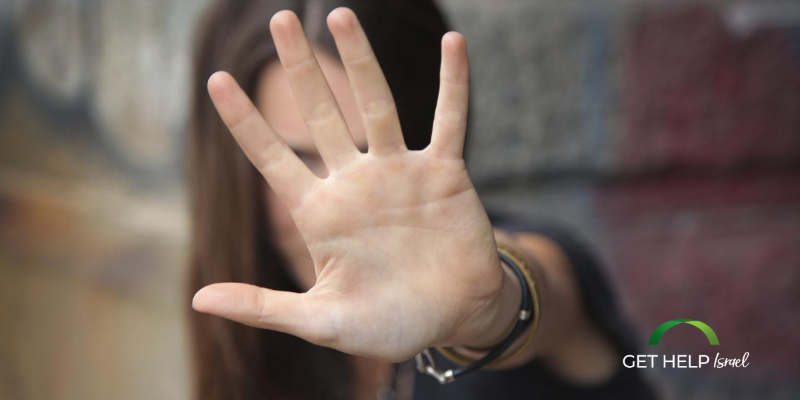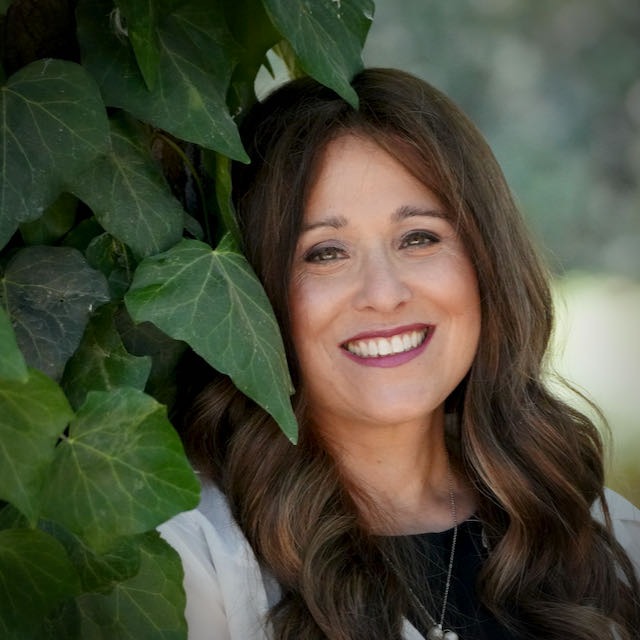Re-Frame Rejection so You Can Successfully Move Forward in Relationships

I have been rejected more times than I can count. By friends, boys, jobs, my kids, you name it…
One of my most memorable rejections happened while in 6th grade. My English teacher encouraged us to write a journal, which I kept "hidden" in my desk. In it, I wrote all about a crush I had on a boy named Joey, a fellow classmate. I forgot that in the morning we sat at one desk and in the afternoon another. A fellow classmate found my journal and proceeded to read that very entry aloud to the entire class during recess.
I'll never forget the feeling of blood rushing to my face as I felt crushed by the weight of shock, horror and embarrassment as my secret was revealed. Needless to say, my crush was unrequited. It felt so awkward to be around Joey for the rest of the year. I felt so much shame and embarrassment that he knew I had feelings for him. Meanwhile, when I think back on it, I had my fair share of opportunities to reject boys who had crushes on me too. Of course, it feels bad to reject someone, but being on the receiving end feels so much worse.
I remember at the time thinking rejection would probably get easier as I got older. I naively imagined that adults fob off rejection like water off a ducks back. No sweat… If only…
Although rejection is painful, I now regard rejection as one might view a battle wound. It reminds me that I lived, loved, lost - but at least I tried.
The year before I met my husband, I met someone that I thought really liked me too and was gutted once again when the feeling wasn’t reciprocated. I mustered up all my courage and asked him out. He refused politely. I could have allowed this rejection to hold me back and keep me down. But instead I took it differently. I thought that at least I hadn’t wasted my time on something that wasn’t meant to be. By the time I met my husband a year later, my rejection armor was intact. At the time, I wasn’t a hundred percent sure he would agree to go out, but knowing I'd survived rejection so many other times, I felt like I could handle his response either way.
Putting yourself in the line of potential rejection is hard. But once you have those battle scars and survive, you know the only way forward is to put yourself on the line again.
I could honestly write a book about my own personal list of rejections, and maybe I will one day, when I work up the courage. For now, I know that putting myself on the front line is the best place to be in spite of the risks involved.
Over the past 20 years in my practice, I've worked with hundreds of people who suffered rejection. The hardest was when a husband revealed to his wife in my office that he was cheating on her. She felt completely rear-ended, never having had a clue about his infidelity. He decided right there and then their marriage was over. She thought they were coming to work on the marriage, while he came to end it. It was a gut-wrenching experience for me to observe.
Holding the space for feelings of rejection feels like a sacred experience to me. The associated pain is a tightly woven ball of so many different emotions, betrayal, confusion, heartache, to name just a few. But then with support, time, distance, understanding and perspective our feelings shift, and we grow stronger in ways we never could have imagined. For those of you who have experienced rejection, you know what I mean. Once those wounds are healed, you feel like a warrior! The trouble is for many the wounds remain for too long as people have trouble letting go.
We are all hard wired to feel pain of rejection. This goes back to tribal times when being ostracized from a tribe was the difference between survival and death.
What made tribes kick out its members was when one tribal member would do something that could bring harm or danger to the rest of the tribe. Consuming too much food and attracting attention from competing or enemy tribes are a couple of examples.
Just being plain different was enough to cause rejection.
In relationship terms, every risk comes with the potential for rejection.
There are simple rejections: not wanting to continue after a first date, or someone not wanting to go out with you at all.
More complex rejections: After dating a long time, a broken engagement, or ending a marriage.
The painful feelings associated with rejection are often directly correlated to the amount of effort and energy you invested in the relationship.
Fear of rejection brings up all sorts of feelings: Shame, anxiety, grief and sadness
Many don't receive enough support as children with being rejected by friends or not being chosen for a team. A really challenging association with rejection is being given up for foster care or adoption, (being rejected by birth parents) this can leave a feeling of an open wound when it comes to future rejections, if they weren’t handled well.
Some are more sensitive to rejection than others in general: Particularly common for people with ADHD. They may experience self-criticism, anxiety and extreme grief.
How does long term rejection affect us:
1) Traumatic impact: it could lead to chronic fear, which could stop people from risk taking
2) Depression: intense sadness and feelings of hopelessness and helplessness.
3) Pain Response: Apparently the same receptors in our brains that are responsible for physical pain are also responsible for pain associated with rejection. (natural pain killers) are released from the brain when we experience rejection.
4) Anxiety and stress may get triggered. If not dealt with immediately they can develop into long term health hazards
How to deal with rejection:
1) Know that rejection isn't always bad. Some people don’t feel they are worthy of you, and they don’t feel prepared to rise to your level
2) These feelings of rejection are usually sitting on an older wound that hasn’t sufficiently healed. Use this opportunity to heal that initial wound.
3) Beef up your self-esteem:
- Write down your 3 biggest accomplishments
- Focus on your triumphs and successes
4) Treat yourself like someone who is suffering from pain
- Get more sleep
- Get more exercise
- Make a healthy menu
- The healthier you stay, the higher you peak
5) See this as an opportunity to rebuild yourself
- Find new interests and a community to hang out with.
6) Focus on things outside yourself. It will make you feel so much better to know you can be involved in someone else's world. Part of the pain of rejection is feeling no one is there for you. When you do something nice for someone else, it's almost like you are giving to yourself.
7) Learn from previous rejecting experiences
8) What not to do immediately after a rejection: Jump into a new relationship
If rejection is something you find you experience often, then ask yourself whether this is something that you are familiar with through your relationship with your parents.
Parents who don’t prioritize us may have been busy with other things and didn’t make time for us.
- Parents who are busy with their own grief and stress may not have sufficiently had the head space to deal with us in the way we needed.
- Parents with an avoidant attachment style often struggle to connect with their kids as they are out of touch with their needs (both their own and those of their child).
- Parents may be alcoholics or suffer from a terminal illness and not have the capacity to deal with their children's emotions.
By acknowledging where the original pain comes from, clearing it out through Somatic Experience therapy you will be supercharged with the ability to overcome rejection in the future.
What does the pain of rejection usually feel like?
When people are rejected their body goes into a freeze. Their brain gets frozen and they feel like they can't make rational decisions. They may have trouble sleeping, working, and concentrating.
By over-focusing on the positive things that are happening in your life you will find the negative associations with rejection will pass.
Being the rejector
While being rejected hurts, being the rejector is no party either.
What you have to remember is that rejecting someone you don’t want to be with is the right and honest thing to do. Being honest about how you feel is saving them time and future pain.
Some of the clients I worked with shared with me the reason they married their partner with whom they feel no connection is they didn’t know how to say no. As a result, they had a miserable few years together. Some even lasted as long as 30+ years. That's a lot of years to be with someone you never wanted to be with from the start.
When we agree to be with someone we don’t want to be with, we ultimately end up making them feel worse. They would much prefer you spend your time elsewhere and be honest up front.
When we reject from a place of respect and consideration it goes so much further. You are honoring yourself and the other person. You are saving each of you time and pain.
When we deliver rejection with compassion, it makes us feel better about our "no", and it makes the rejected feel better too.
When you are rejecting someone, be kind, respectful and empathetic. Know that your honesty in that moment is the greatest sign of respect you can show to yourself and someone else.
Being on either side of the rejection table is hard. Know that with the right tools and time the wounds can heal.



